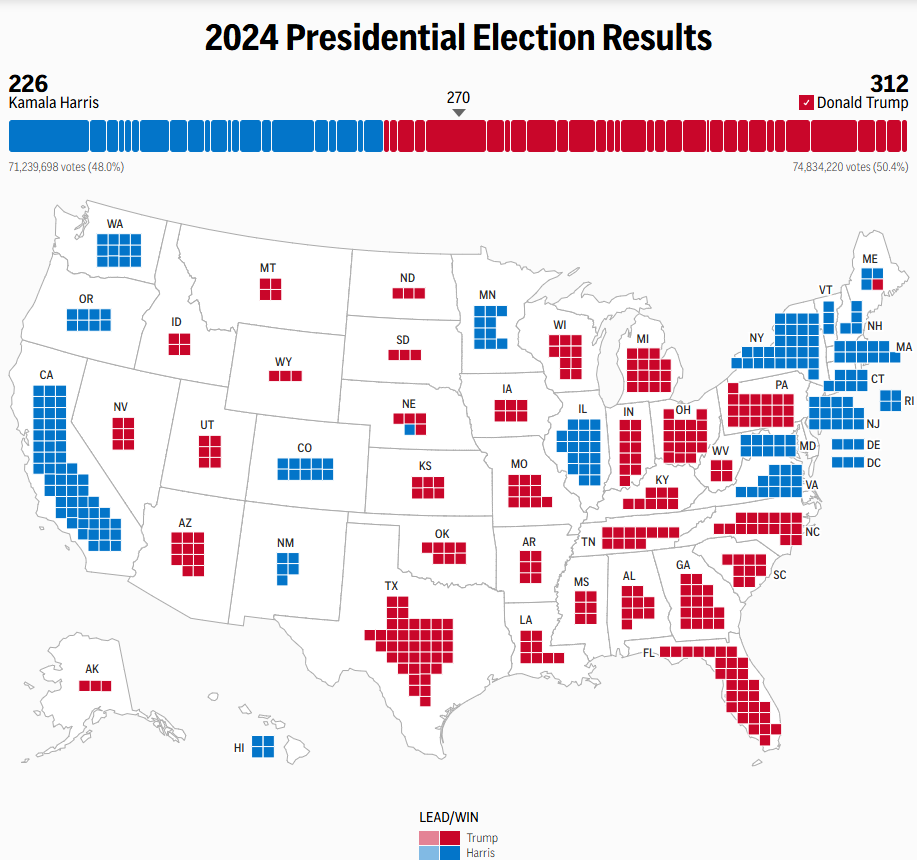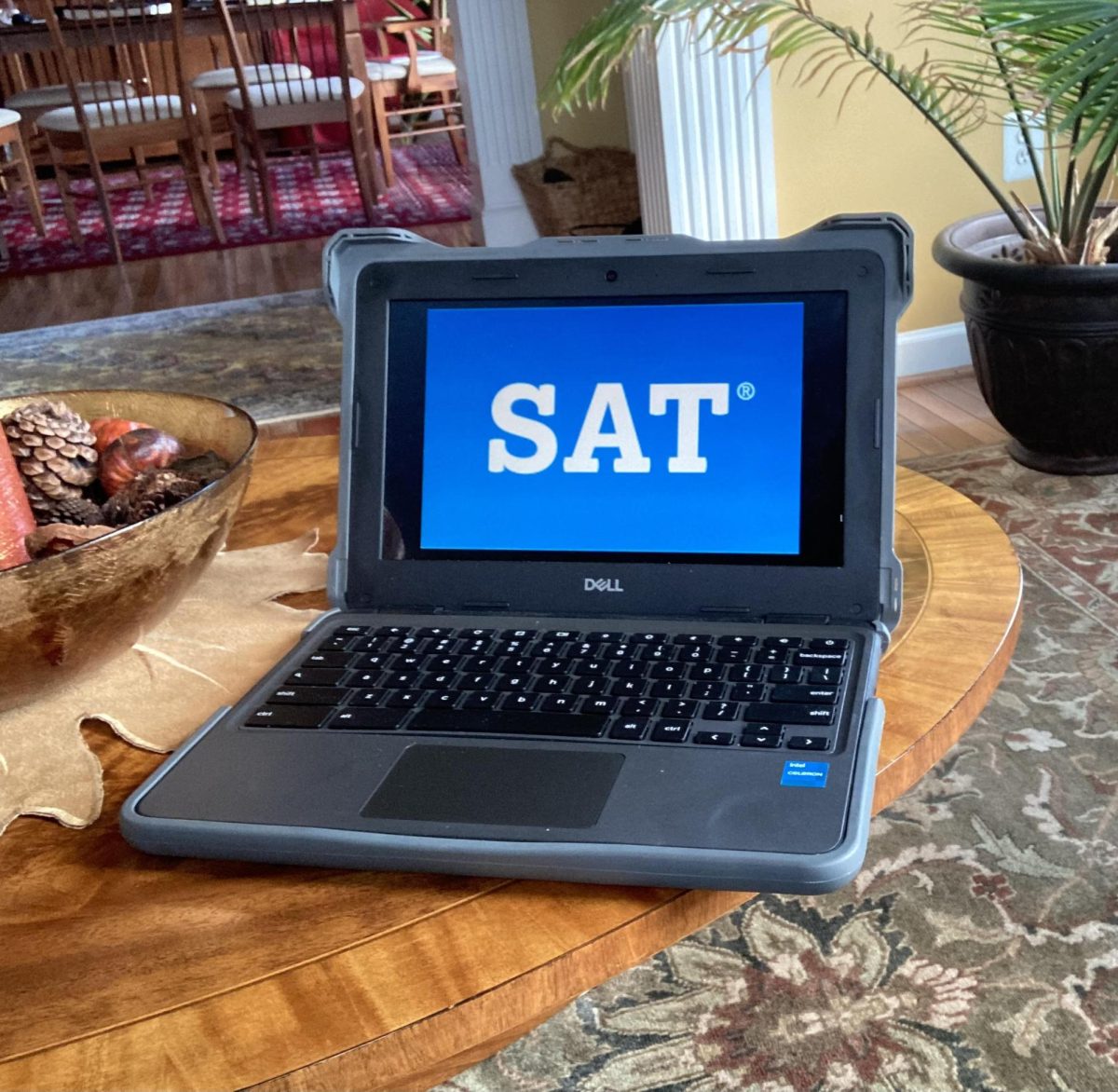On November 6th, 2024, the Associated Press reported that former president Donald J. Trump had won the state of Wisconsin. This secured him another 10 electoral votes, officially making him the president-elect.
While the results of the election should go unquestioned, the problems arise in how the election is conducted. The United States uses the electoral college which is the process of counting a certain number of electoral votes per state. Electoral votes are determined by the number of congress members in a state, and a candidate must get 270 electoral votes in order to win.
The original purpose of its creation was to even out the votes between states. West and midwest states with lower rural populations would have less of an impact than those with large city populations. This causes a different problem where swing states are seen as the only important factor in an election, and states who lean in one direction or the other are considered less while campaigning. “I think both systems are flawed,” comments Ronnie Beard, a government teacher at Oakdale. “The electoral college could be improved in the future because there’s still always those battleground swing states that are gonna be involved in elections.”
In addition to this, the electoral college doesn’t always elect the candidate that wins the popular vote. From 2000 to now, republicans have only won the popular vote twice. Despite this, one has already served two terms, and another is expected to serve his second term starting January 20th, 2025. Other candidates who have been elected by the electoral college but not the popular vote are Rutherford B. Hayes in 1876, and Benjamin Harrison in 1888.
This leads many to feel like their votes don’t matter. People who vote differently than the majority of their state often feel like there’s no point in voting because their state will just elect the person they don’t want. This works in reverse too, because people who vote with the majority of their state may feel too secure in their candidate winning and not care enough to vote.
The worst part is that, to an extent, they’re right. People should vote no matter what, but the electoral college creates an environment where some votes are seen as more powerful than others. “I grew up in Georgia, my brother still lives there, and his vote is ranked to be 180 times more valuable than mine,” explains National and Global Issues teacher Nissa Quill. “And I don’t think that’s really good for our country when people think their vote has much less sway than somebody else’s.”
Those living in swing states have much more of an impact than people living in deep red or blue states, which shouldn’t be the case. Everyone’s vote should matter the same regardless of where they live, but the electoral college makes it extremely difficult for this to be the case.
Now, the big question; why does the US still use this system? Its original purpose isn’t needed anymore, the system has a chance of electing an unpopular candidate, it unintentionally encourages people not to vote, and some people’s votes have more of a value than others.
It’s likely because it’s so difficult to remove. It would require the repealment of the 12th amendment, something that would take two-thirds of congress and three-fourths of the states to agree on. Propositions to end it have gained some popularity, but none have been successful. Still, switching to the popular vote is worth the process it takes when it means that every voice can be equally heard.
The electoral college is an outdated system that no longer has a practical use. While it embodies more of the country by landmass, our land isn’t what votes; it’s our people. And in a representative democracy, the voice of the people matters a lot more than the overall lean of a state.









